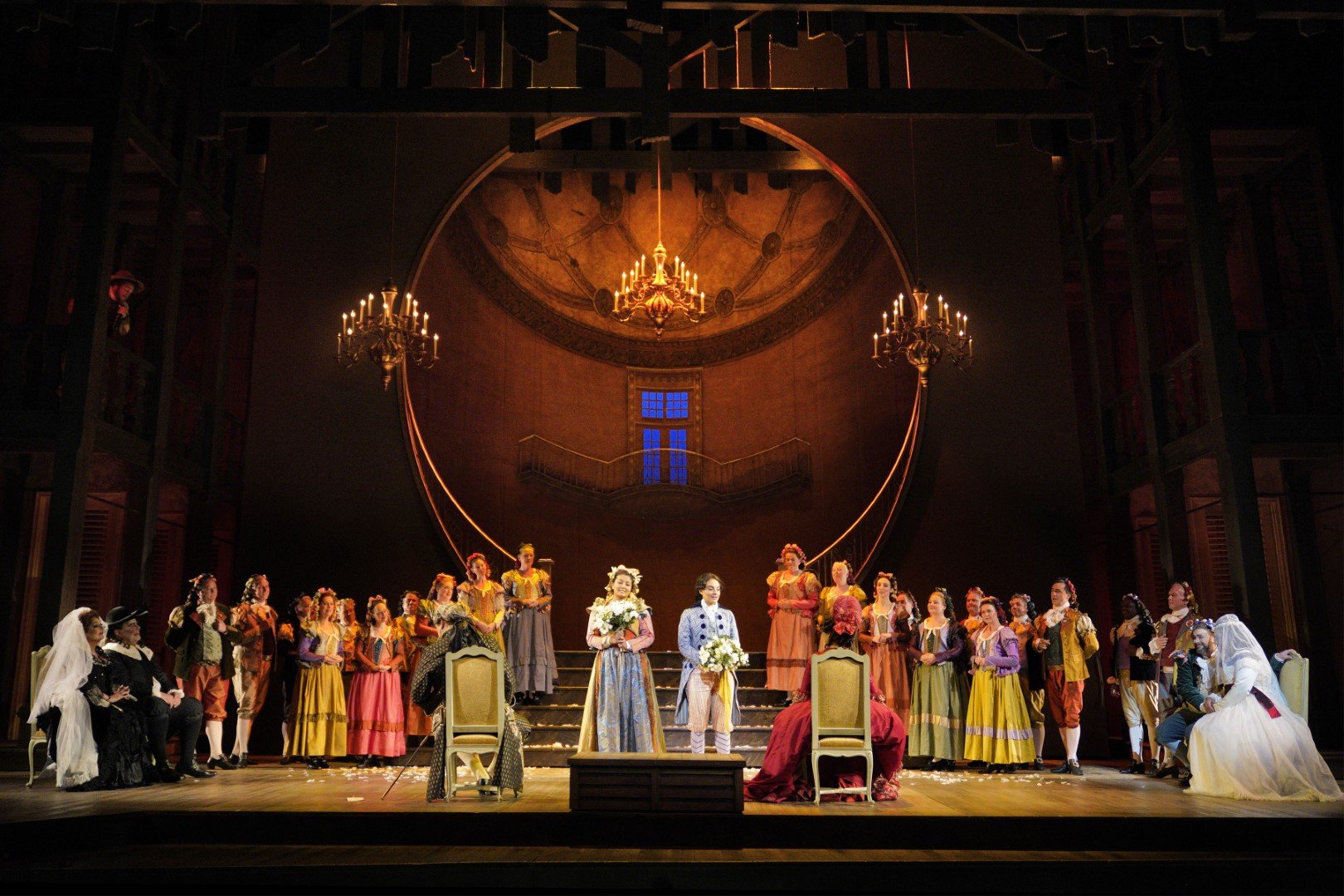In LA Opera's New ‘Figaro’, the Old has Become Fashionable Again
/By Truman C. Wang
2/6/2023
Photo credit: Cory Weaver / LA Opera
As LA Opera’s fourth mainstage production of the season, this all-new Marriage of Figaro (since 2015) is as distinguished as one could hope to see anywhere – admirably sung, delightful to look at, executed with dedication and in detail, natural and unaffected in its flow.
The new production, arriving by way of the Théâtre des Champs-Elysées in Paris, features opulent eighteenth-century décor by Santo Loquasto and costume by Christian Lacroix. It is rare these days, even in conservative America, to see real trees, real furniture, and beautiful things on the operatic stage (nothing outlandish like the 1990 Gianni Versace-designed Capriccio for San Francisco). There is even an alcove in the Countess’ bedroom that resembles the window display of a luxury fashion boutique. The costume design is full of Lacroix touches – flower print on the Count's cape, hot colors for the townsfolk and servants, and the Countess' over-the-top Marie Antoinette-style Rococo gown. It's all very theatrical and haute couture. In my opinion, this Figaro is a much more satisfying and artistically successful Paris-L.A. collaboration than last summer’s lackluster Paris Opera Ballet at the Bowl.
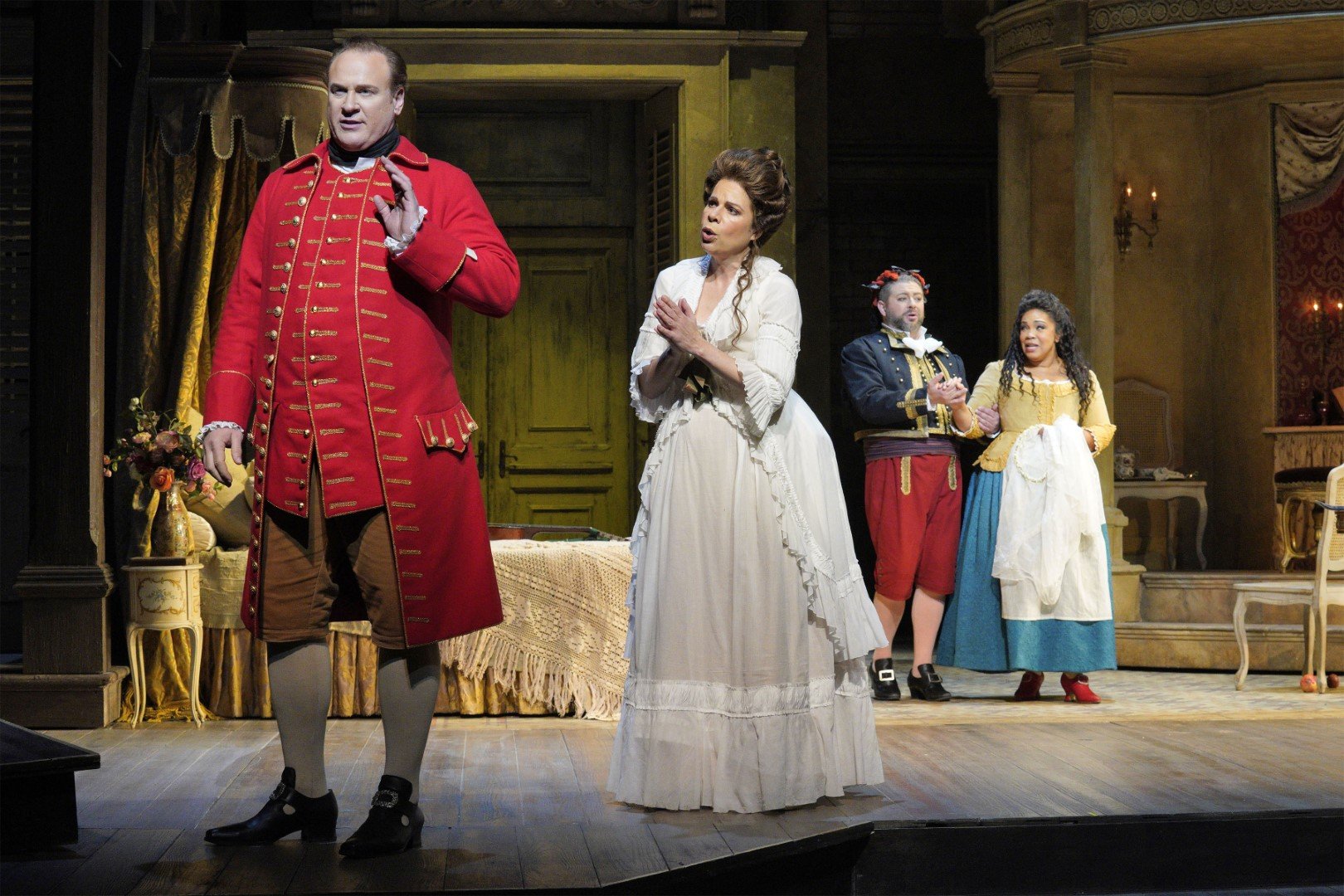
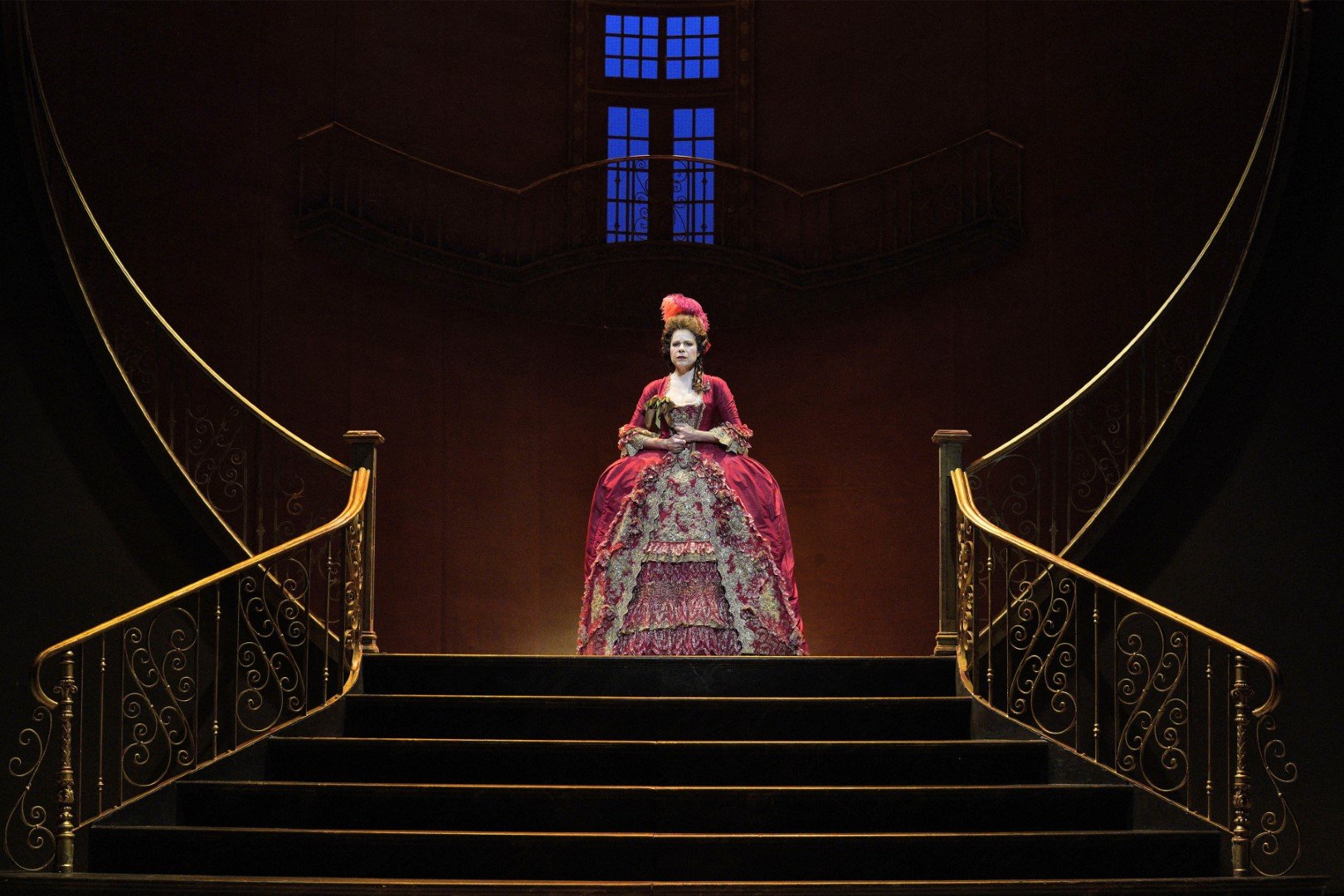
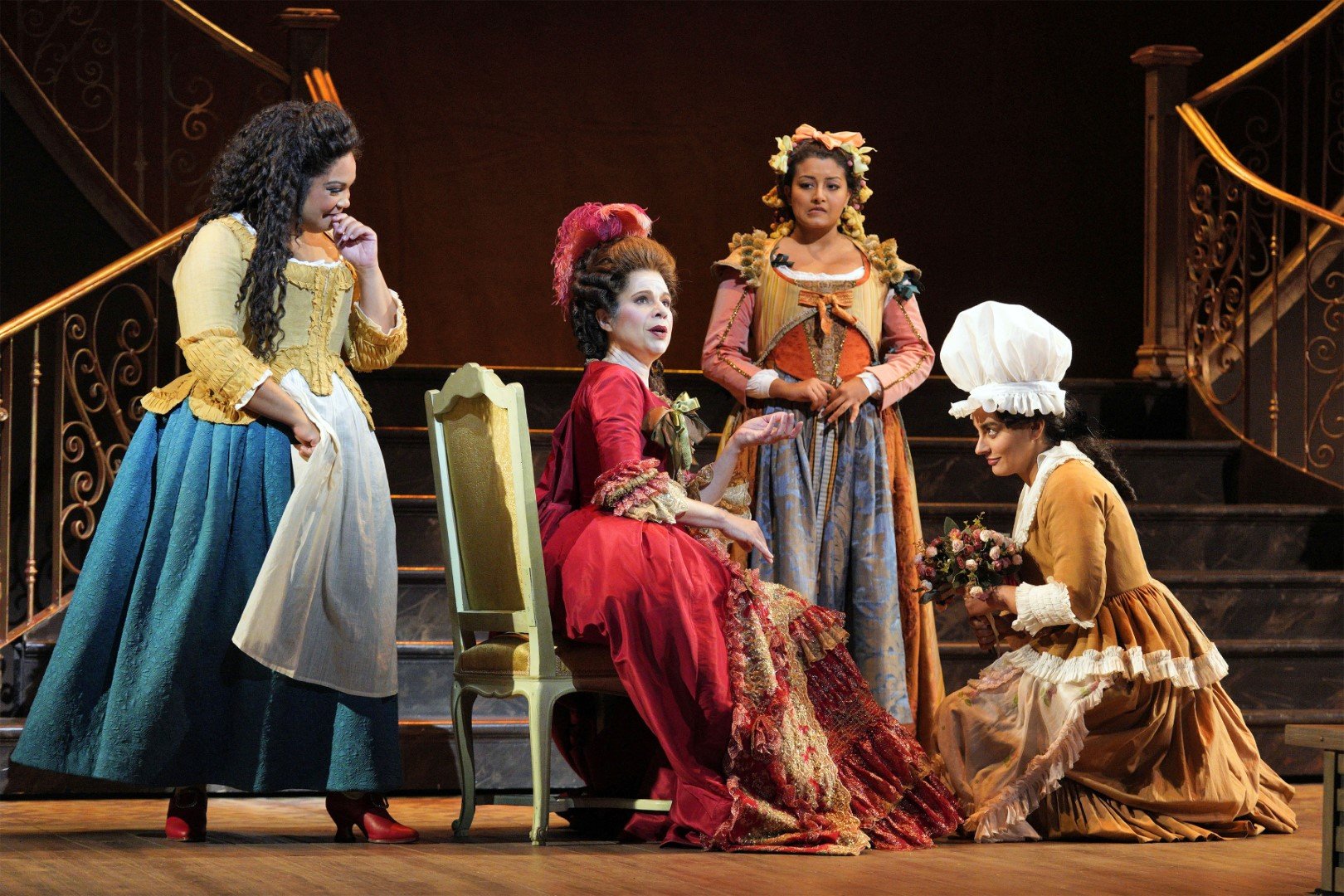
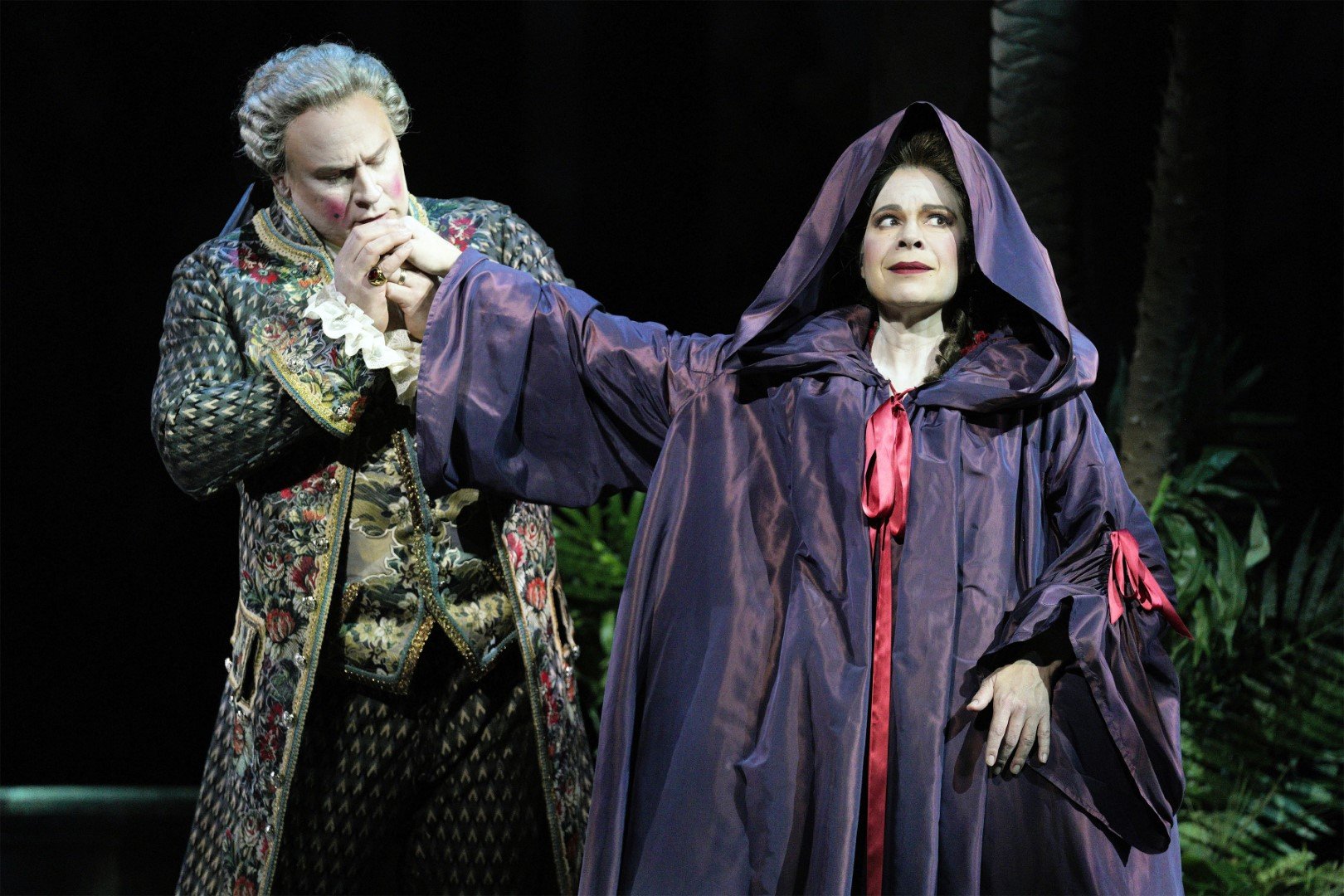
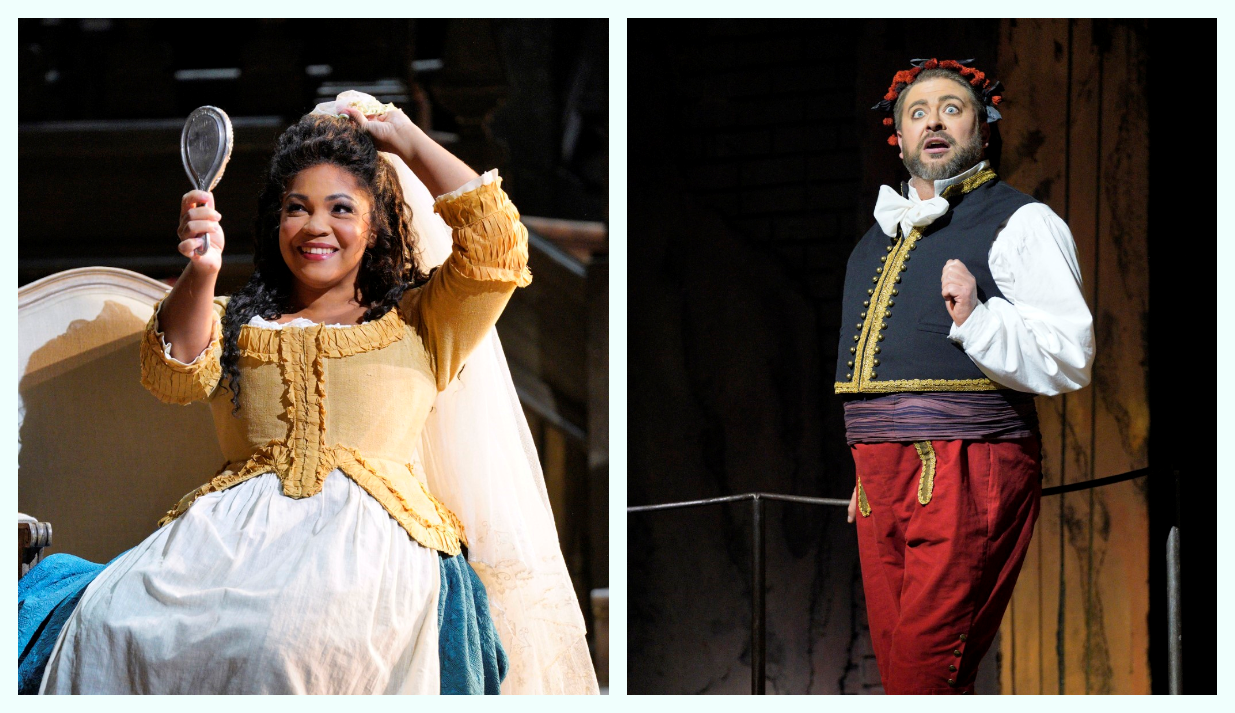
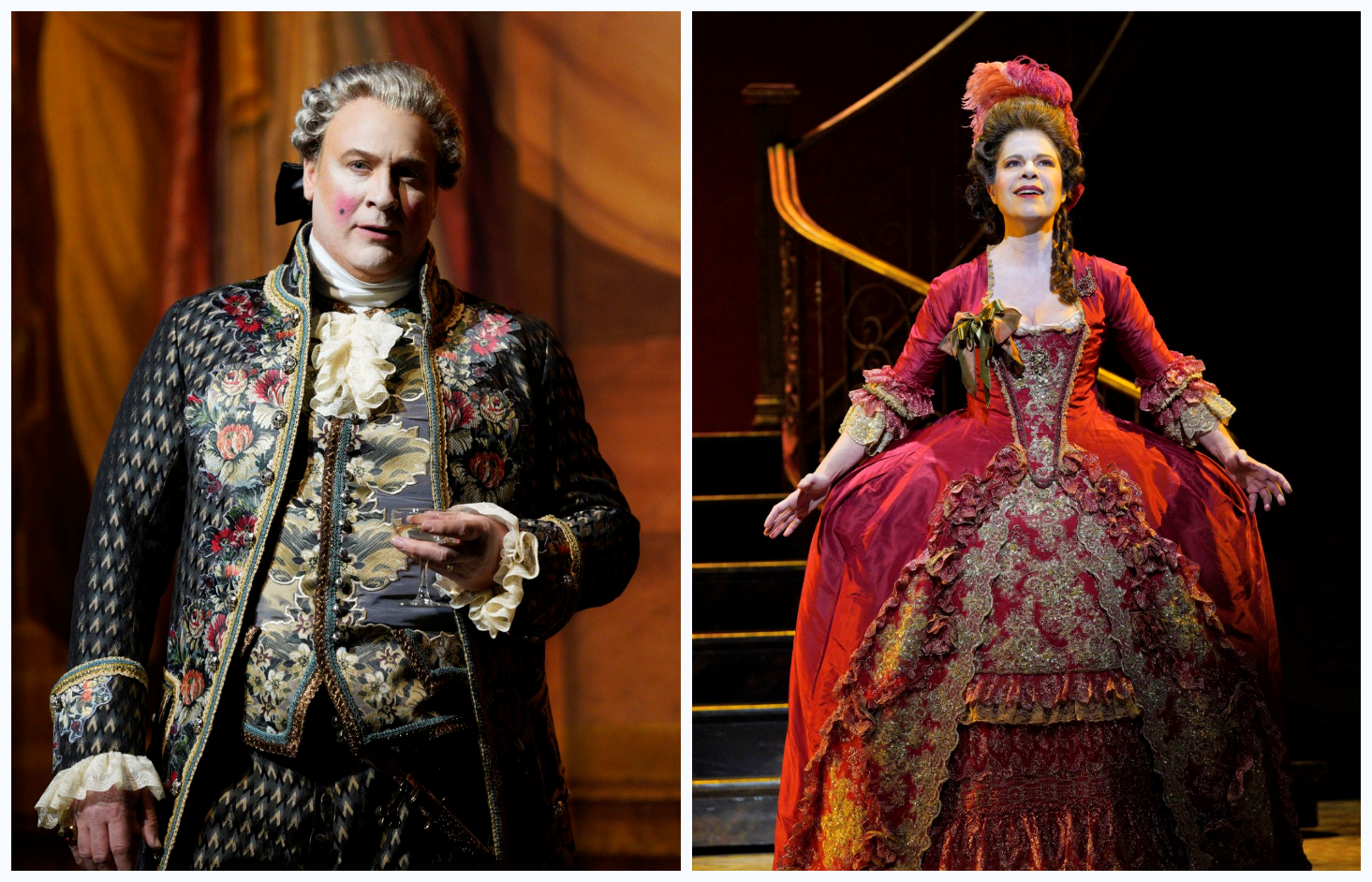
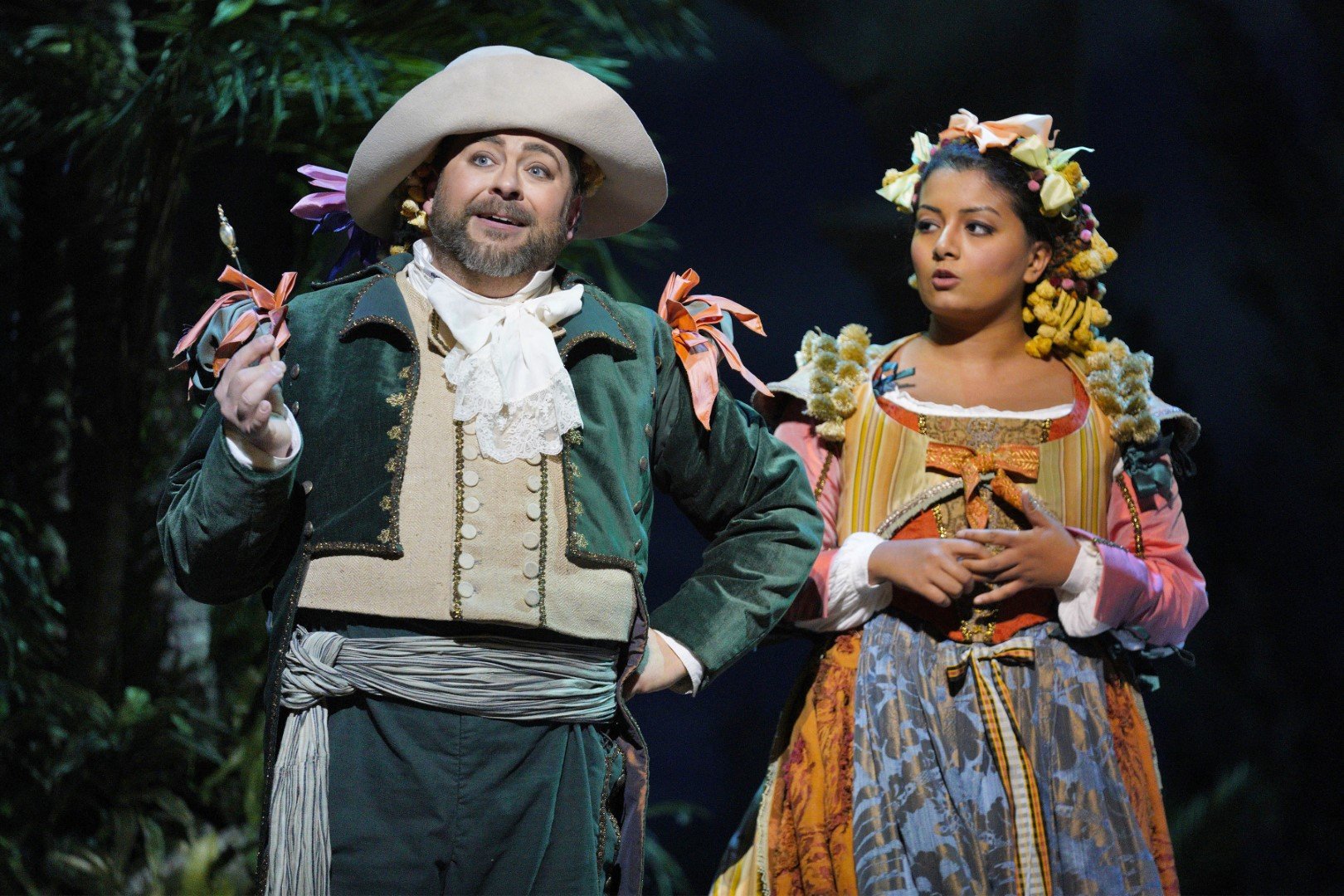
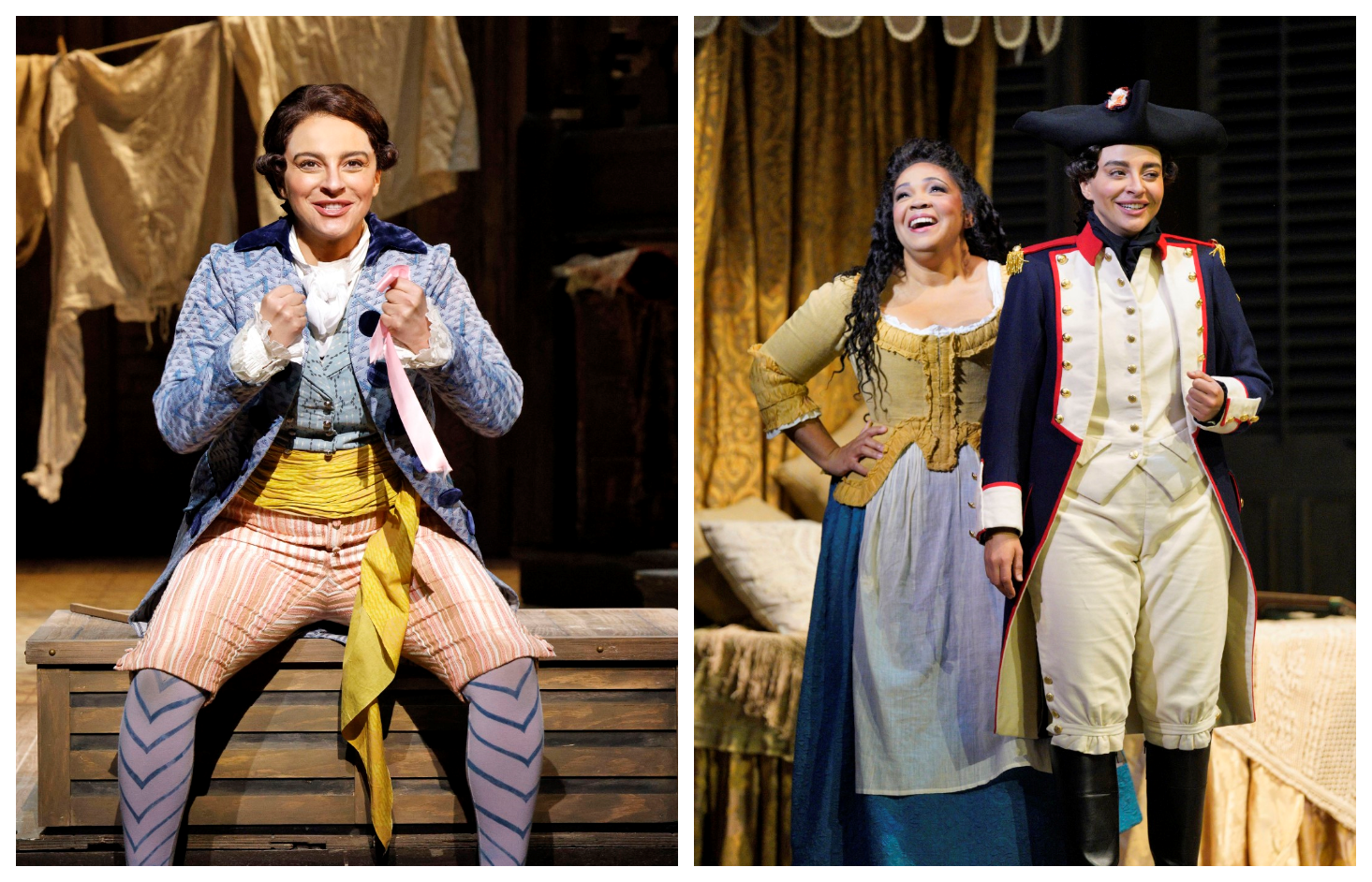
Filmmaker James Gray’s direction is carefully, expertly and lovingly worked. All the characters ring true. There are no directorial urges to over-elaborate and add to Mozart’s original stage pictures – Cherubino hiding inside a big chair, the Countess singing her two arias alone undisturbed. And the sense of comedic timing – of a real day during which events and emotions come together in crisis – appears irresistible. York Kennedy’s lighting works well. One cannot help noticing, most of the time, Lacroix’s costumes are well-lit while the stage remains dim, as in the Act 4 garden scene.
On opening night, February 4, Craig Colclough in the title role was excellent, sounding amiable and angry in this battle of sexes and of classes. Janai Brugger was a captivating Susanna, warm, sweet and pure in tone, gentle but lively, delicate but never wan. Ana María Martínez’s voice, as the Countess, has lost some of the bloom, still she produced a lovely sound – full, supple and sure in its moves from note to note. Lucas Meachem’s Count was sharply drawn, trenchant, strong in voice and in personality. Rihab Chaieb, in her LA Opera debut, was a keenly memorable Cherubino, as were Marie McLaughlin’s lovable, funny Marcellina, Kristinn Sigmundsson’s substantial Bartolo, and Deepa Johnny’s delightful Barbarina.
James Conlon conducted the score fast, following Mozart’s presto marking in the overture and, for the rest, declining Mozart’s invitation for appoggiaturas and cadenza/reprise variations. For a new production that emphasizes historical authenticity, the musical execution seems rather anachronistic. Two arias in Act 4 for Marcellina and Basilio are cut, shaving six minutes off of a three-and-a-half hour show. The LA Opera Chorus sang and acted admirably.
Truman C. Wang is Editor-in-Chief of Classical Voice, whose articles have appeared in the Pasadena Star-News, San Gabriel Valley Tribune, other Southern California publications, as well as the Hawaiian Chinese Daily. He studied Integrative Biology and Music at U.C. Berkeley.


